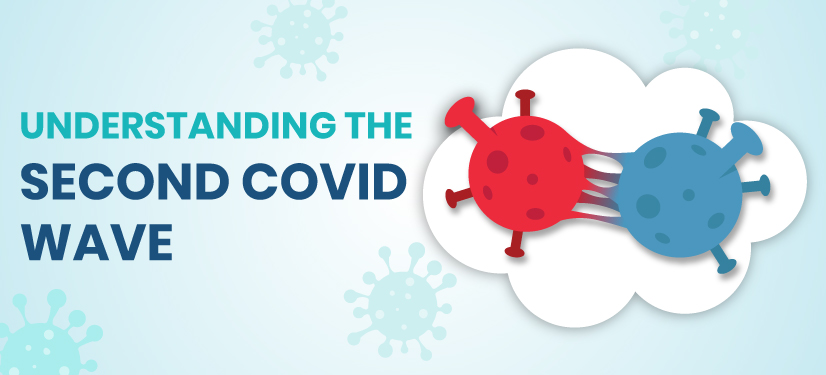
You must all know that the entire country is in the middle of the second wave of Covid-19, which is spreading more rapidly than the first one. You may hear a lot of confusing advice and terminology flying about! Double masking, mutations, ‘variant of concern’ and ‘variant of interest’ and tongue-twister like names of medicines can all be quite overwhelming!
These new developments may be very confusing and scary at the same time. Which is why, it is a good idea to take a step back and look at the science behind it.
Understanding the biology behind the new variants of coronavirus might help you learn an important lesson on mutation and how different variants of the same virus attack the human body in different ways.
How is the second-wave Covid virus different?
One of the first questions about the second wave might be: Why is the second wave spreading more rapidly than the first? In short, the new variant of the virus, referred to as Covid 2.0, is a stronger, more potent form – like an evil, destructive, robot with new powers!
Biologically speaking, the virus that initially triggered the pandemic in 2020 called Sars Cov 2, has undergone two (or maybe three?) mutations. Now, what does a mutation mean? Are you thinking about X-Men and Teenage Mutant Ninja Turtles where humans or turtles become unrecognisably different?.
Well, when it comes to viruses, it is merely a multiplication error. To put it in simpler terms, when viruses enter the human body, they are under pressure to multiply rapidly.

When viruses multiply, they sometimes change their form
While they are at it, some errors happen in their physical structure. Sometimes, their protein structure changes, other times their DNA also gets altered.
And you must all know about DNA, which is the basic building block of your genes.
Now, coming back to mutation, you must understand that all viruses undergo this process – right from the common cold virus to HIV. However, most of the mutations are harmless. They don’t really change the way they react within the host. (In this case, it is the human body). Our immune system detects these minor mutations and protects our body from further impact.
However, sometimes, some variants change their behaviour through mutation and become variants of concern. Unfortunately, if you have some of the emerging variants of COVID-19, the consequences are quite drastic.
These variants evade the immune system. And the longer they are allowed to multiply within one or many human bodies, they are prone to more mutations.
As a result, some of the variants are not even detected by antibodies.
(You all know that antibodies are warriors in our body that prevent infections, right?)
So, when these antibodies let the virus strains go undetected, you are more prone to getting infected.
How will it affect us differently?
Just like the form and behaviour, the symptoms have also changed from the first wave. The coronavirus in the first wave mostly affected adults over the age of 40, but this time, even as older people still remain vulnerable, a greater number of children and young adults are affected. Experts and scientists say that compared to the first wave, the second wave has seen more children (under the age of 19) hospitalised.
Now, coming to the symptoms: some of the common ones such as cough, cold and fever were found in patients affected in the first and second wave.
However, in the second wave, there are also more people who are experiencing gastrointestinal issues in addition to the respiratory symptoms that the first wave saw. These symptoms do seem scary and might create panic. But we urge you to stay calm and do your bit to stop the spread even further.
What can you do to stay safe?

A list of Do’s and Don’ts Courtesy: World Health Organisation
As students who are aware of the coronavirus and are living through the pandemic, you can stay home as much as you can and wear a mask even if you step outside for a few minutes. Remember the basic rules of safety from the first wave – maintain social distancing/ stay indoors , cough/sneeze into your elbow. These are all still important now. If you’re referring to the internet for more information, do check for verified, reliable sources like the WHO’s guidelines and information from the Ministry of Health and Family Welfare (MoHFW).
Any other facts and useful information that you have to share? Please comment below.
Aparna is a mom, singer and dreamer. At BYJU'S, she writes stories about learning for children. She believes in the power of music, especially ghazal, the magic of the universe and happy learners. When not writing or singing, you will find her intensely engaged in conversations about life and the power of words.
Comments
Nikhil
May 19, 2021
?Stay home stay safe and always were mask and don’t get out from home and wash your hand ?
Uday Raj Khatri
May 19, 2021
Thank you for such a wonderful information ??
I will always follow covid 19 prevention guidelines ??
We will surely be able to defeat corona virus ???
Sanchita
May 19, 2021
Thank you BYJUS for your more information about the pandemic covid 19. I request everyone to wear mask and maintain social distance.